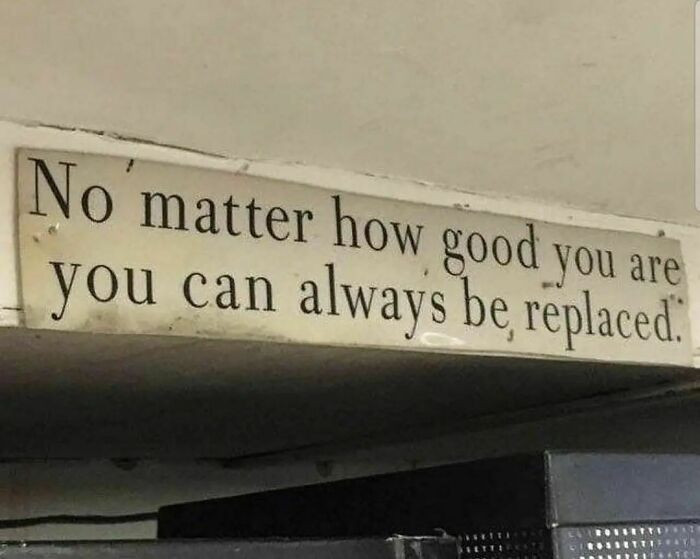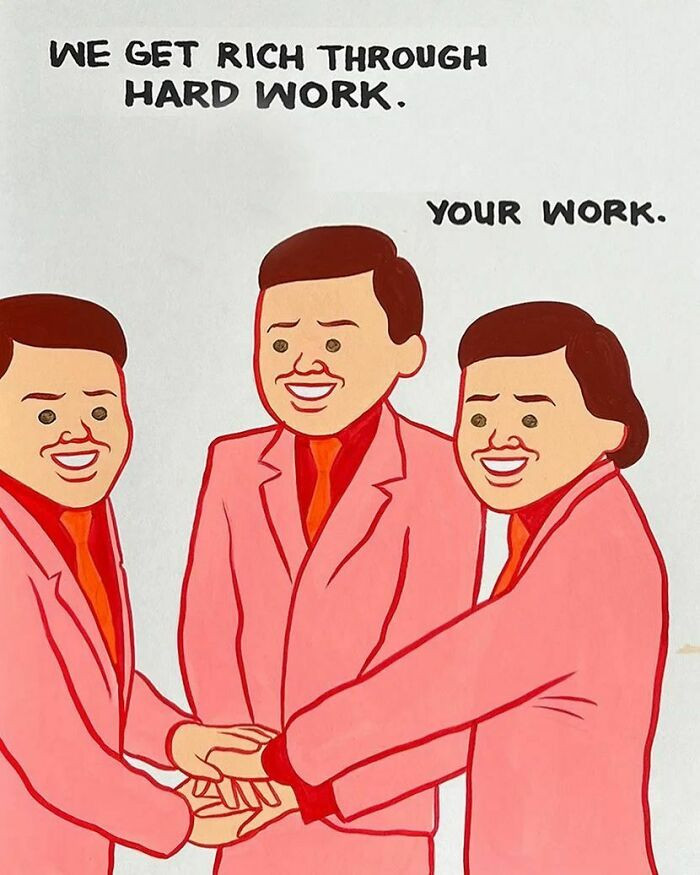Here Are 50 Of The Most Hilarious Random Memes To Get You Through The Week On A Happy Note

Capitalism... Not for everyone

The absurdities of capitalism become glaringly apparent when we examine how profits often take precedence over people and sustainability. In today's world, the relentless pursuit of endless growth and the manipulation of consumers through deceptive advertising tactics are prevalent.
Moreover, issues like the widespread use of unpaid internships further exemplify the troubling aspects of this economic system. Capitalism has shaped a society that revolves around consumption, particularly in Western countries.
A simple trip to the supermarket reveals the excessive abundance of choices available for even the most basic of purchases, such as a carton of milk. While choice is generally considered advantageous, the sheer magnitude of options can sometimes reach ludicrous levels.
To shed light on the inherent absurdities of capitalism, we turn to the "Humans of Capitalism" Instagram page, a platform that captures and shares real-life examples showcasing the extreme and dystopian manifestations of corporate power. By exploring the content on this page, readers can gain firsthand insight into the unsettling realities that capitalism can engender.
These glimpses into the realities of capitalism prompt us to reflect on the consequences of prioritizing profits above all else. The negative impacts are evident: the marginalization of human well-being, the disregard for long-term sustainability, and the perpetuation of an insatiable consumer culture.
 Pexels
Pexels humans_of_capitalism
humans_of_capitalism humans_of_capitalism
humans_of_capitalism humans_of_capitalism
humans_of_capitalism humans_of_capitalism
humans_of_capitalism humans_of_capitalism
humans_of_capitalism humans_of_capitalism
humans_of_capitalism humans_of_capitalism
humans_of_capitalism humans_of_capitalism
humans_of_capitalism humans_of_capitalism
humans_of_capitalism humans_of_capitalism
humans_of_capitalism humans_of_capitalism
humans_of_capitalism humans_of_capitalism
humans_of_capitalism humans_of_capitalism
humans_of_capitalism humans_of_capitalism
humans_of_capitalism humans_of_capitalism
humans_of_capitalism
 humans_of_capitalism
humans_of_capitalism
 humans_of_capitalism
humans_of_capitalism
 humans_of_capitalism
humans_of_capitalism
 humans_of_capitalism
humans_of_capitalism
 humans_of_capitalism
humans_of_capitalism
 humans_of_capitalism
humans_of_capitalism
 humans_of_capitalism
humans_of_capitalism
 humans_of_capitalism
humans_of_capitalism
 humans_of_capitalism
humans_of_capitalism
 humans_of_capitalism
humans_of_capitalism
 humans_of_capitalism
humans_of_capitalism
 humans_of_capitalism
humans_of_capitalism
 humans_of_capitalism
humans_of_capitalism
 humans_of_capitalism
humans_of_capitalism
 humans_of_capitalism
humans_of_capitalism
 humans_of_capitalism
humans_of_capitalism
 humans_of_capitalism
humans_of_capitalism
 humans_of_capitalism
humans_of_capitalism
 humans_of_capitalism
humans_of_capitalism
 humans_of_capitalism
humans_of_capitalism
 humans_of_capitalism
humans_of_capitalism
 humans_of_capitalism
humans_of_capitalism
 humans_of_capitalism
humans_of_capitalism
 humans_of_capitalism
humans_of_capitalism
 humans_of_capitalism
humans_of_capitalism
 humans_of_capitalism
humans_of_capitalism
 humans_of_capitalism
humans_of_capitalism
 humans_of_capitalism
humans_of_capitalism
 humans_of_capitalism
humans_of_capitalism
 humans_of_capitalism
humans_of_capitalism
 humans_of_capitalism
humans_of_capitalism
 humans_of_capitalism
humans_of_capitalism
 humans_of_capitalism
humans_of_capitalism
 humans_of_capitalism
humans_of_capitalism
 humans_of_capitalism
humans_of_capitalism
While these images might make us laugh, it’s important to address the issues here. Recognizing the underlying motivations behind our consumption habits can help us make more conscious choices about what we buy and why.
It can also help us focus on personal growth, relationships, and contributing to the well-being of others and the world around us.“We cannot say that consumerism is the only aspect to blame in terms of social and environmental responsibility, but we should look inside ourselves and ask questions such as ‘Do I really need to buy that product, and if so, how can I dispose of it after I used it?’, ‘how can I become less selfish and think less about myself and help those people in need?’.
We should become less centered on ourselves and concentrate our efforts on becoming more human. This approach should begin in schools by educating pupils and adults in universities about taking care of our environment.
All educational institutions must embrace a philosophical approach to education. That means becoming who you are, what you were born to be,” Caramia added.





